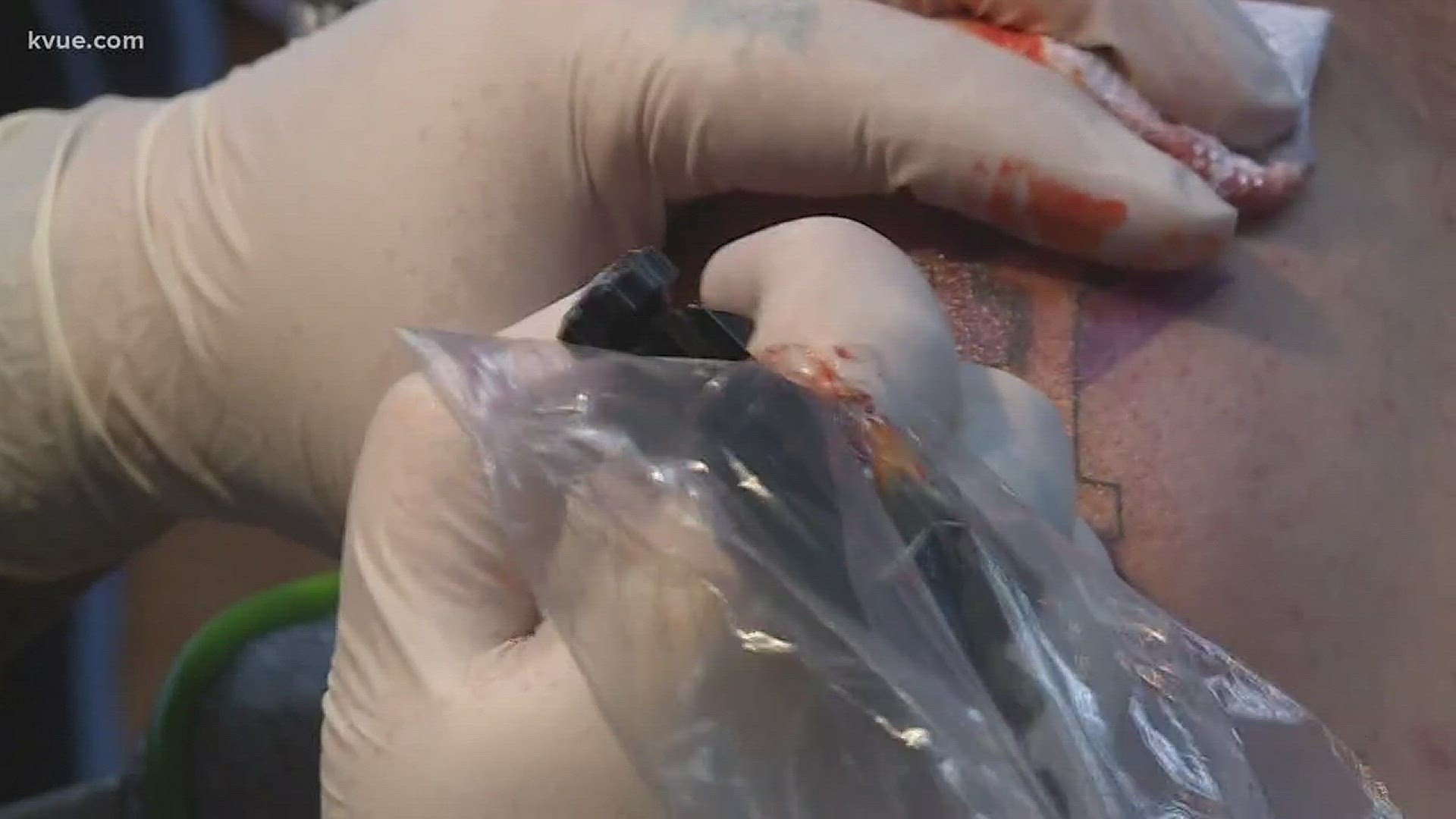Anywhere you go in Austin, it can be difficult to find someone without a tattoo.
But doctors want people to know that tattoos could give you an infection, maybe even 15 years after you got the tattoo.
It can be difficult to pick just the right design for your tattoo, and unfortunately Loren Siegel regrets her choice.
"I got a tattoo on my 22nd birthday and didn't really put a lot of thought into it,” said Siegel.
She's now getting her tattoo removed, for aesthetics, but after recent research, also for health reasons.
"There is the potential risk there and it really didn't occur to me until I was older, so I think just getting it so young that none of that really crossed my mind,” said Siegel.
Doctor Heidi Prather at Westlake Dermatology said your body starts fighting the ink as soon as you get a tattoo.
“It will always uptake and go to the lymph nodes as your body is trying to clear that tattoo,” said Prather.
And she said, in some cases, that can create swelling, pain and redness in the lymph node.
"The problem with the tattoo inks is they are highly unregulated, so there is difference in particle size. That means Nano particles can go deeper and spread more quickly throughout the body,” said Prather. “There's even been cases where there has been contaminants and microbacteria in the inks, so they seed into the skin and then that infection can be slow to show itself, and so even weeks to months later you can start to show a problem.”
But before you think twice about getting a tattoo, she does say lymph node infection can happen in some cases.
“Complications with tattoos are incredibly rare and we don't hear a lot about it because they don't happen that often," said Prather. "The problem is when they do happen they can have very adverse effects on our patients.”
"I have never heard of that, at all, ever," said tattoo artist Mike Pain.
Mike Pain has been a tattoo artist for almost 25 years.
"I've never seen anybody come in with an infection from a tattoo that was years ago, or sick from it, or anything like that,” said Pain.
He works at Atomic Tattoo, and he said they go to great lengths to make sure their customers don't get any kind of infection.
"Pretty much everybody here uses all new equipment now, I mean like brand new, out of the package, disposables, you just throw it away when you're done,” said Pain.
For Siegel, she just wants to see some more research.
"I think that it's really good to do some research into something that you're going to be permanently applying to your body,” said Siegel.
“My best advice is everyone should be getting annual skin checks with their dermatologist,” said Prather.
Doctor Prather said tattoo ink can also cause delayed allergies in some people.
“Tattoo ink is very unregulated in terms of how it's made," Prather said. "We do know that red ink tends to be more allergenic, and so if people are going to get an allergy, it's more likely the red ink.”

